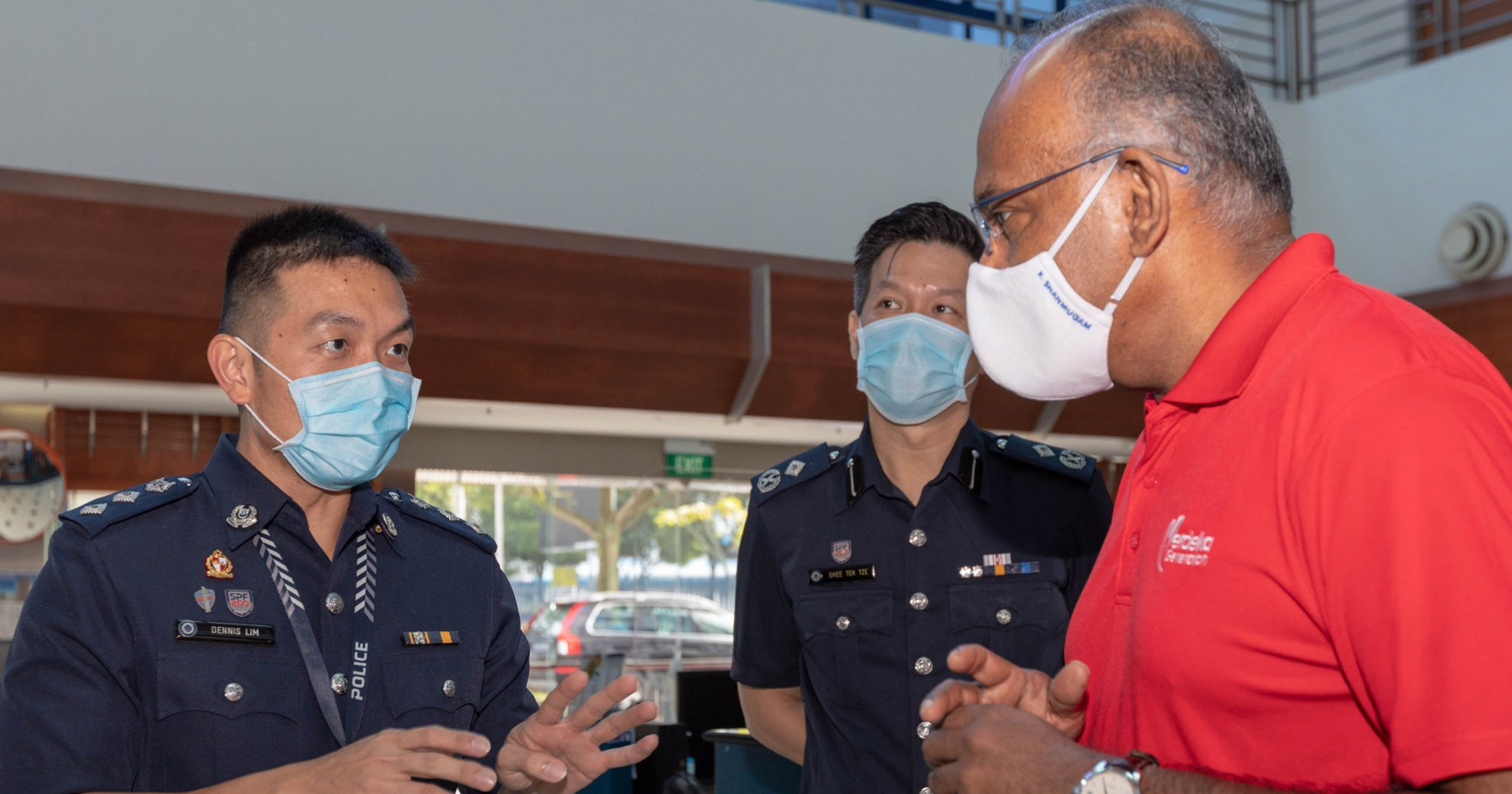The recent terror attacks in France and how its government responded to them reflect the differences in how it deals with religious matters and potential conflict as compared to Singapore, Minister for Home Affairs and Law K Shanmugam said on Tuesday (Nov. 24).
While both countries are secular and guarantee freedom of religion, France prefers a hands-off approach while Singapore takes an interventionist one instead, he noted.
Speaking at the 16th Religious Rehabilitation Group Seminar at Khadijah Mosque on Nov. 24, the minister also stressed the importance of the government working together with community leaders to counter religious extremism.
The attacks in France, & the ensuing fallout
In his speech, Shanmugam mentioned what French President Emmanuel Macron said after the murder of schoolteacher Samuel Paty by a Chechen Muslim.
Macron paid tribute to Paty and also defended the right of French publications to publish offensive cartoons. His comments, however, elicited strong reactions from Muslims around the world, some of whom labelled them Islamophobic.
Extremists and terrorist groups then seized on the speech as an excuse to attack others who have insulted Islam (according to their own definition), resulting in copycat attacks elsewhere in France and Austria.
Shanmugam added:
"Jihadists don't represent Islam; you have people like that in every religion who will resort to violence. So it's not a problem with any particular religion, but you will always have people like this. The question is how do we deal with them."
France's "hands-off" approach
Shanmugam explained the French approach to dealing with religious issues, known as French secularism or laïcité.
In France, the government does not intervene in religious matters or stop publications that attack religions. Freedom of speech is "quite absolute", and anyone can publish anything offensive to any religion.
This approach did not emerge overnight, he explained. Shanmugam cited French history, where the church once held strong power in society, and could have people arrested if they were deemed a threat. Over the centuries, the balance shifted and the principles of secularism and separation of church and state became stronger, particularly after World War II.
France faced a challenge with new immigrants, though, he noted, because it had assumed that they would wholeheartedly accept the French approach to secularity and freedom of speech.
He also explained that the state did not take active effort to integrate the new immigrants with the French approach, or look at how it could be recalibrated in light of the changes to France's population accompanying their arrival.
Singapore's interventionist approach
Singapore, on the other hand, took a different approach, Shanmugam said.
The minister noted that the government would have taken action against a publication that offends religious sensibilities (like Charlie Hebdo), even though it would be viewed as an affront to free speech in other countries.
"This is why we are defensive when it comes to race and religion. Because if we take a hands-off approach, people will say 'since the government won't do something, I will do something.'"
He emphasised that the government's policies are secular, guarantees freedom of religion and does not favour any one religion.
However, it is more interventionist than in France. Singapore takes the position that the right to speak freely goes with the duty to act responsibly, and the two must go together.
Therefore, he said, freedom of speech in Singapore stops at the boundary of giving offence to religion.
Increased security efforts
Shanmugam cited efforts made by the government to respond to religious extremism, such as amending the Maintenance of Religious Harmony Act so that the minister can issue a restraining notice immediately, instead of giving a 14-day notice.
"Today you give a 14-day notice, it goes around the world several times before the 14 minutes are up," said Shanmugam.
Foreign interference in Singapore's religious affairs is also restricted, with religious groups now required to report donations from foreigners, and restrictions in place on the number of foreigners who can sit on committees in charge of religion.
On the ground, the authorities have ramped up security efforts, with the police increasing ground presence and the Internal Security Department (ISD) stepping up monitoring of suspected radicalised individuals after the events in France.
Shanmugam referred to the investigations into 37 individuals — 14 Singaporeans and 23 foreigners, one of whom was arrested under the Internal Security Act — for suspected radical activity and social media posts inciting violence and stoking unrest.
However, Shanmugam added that the authorities must work with community groups to most adequately address the challenge of terrorism and extremist radicalisation.
"The government cannot do this alone. We need the community to come in. Only the community can protect itself, community leaders can protect the community from extremism and terrorism. It takes a whole of society effort. We need calm, credible authoritative voices to lower the temperature and to drown out, reduce hate speech."
He commended the Religious Rehabilitation Group for issuing a statement condemning the acts of violence in France, and also individual asatizah (religious teachers) for calling for mutual respect and compassion on their own social media accounts.
He added that these strong, clear responses are important in setting the tone for the community.
We deliver more stories to you on LinkedIn
Top image from K Shanmugam's Facebook page.
If you like what you read, follow us on Facebook, Instagram, Twitter and Telegram to get the latest updates.
